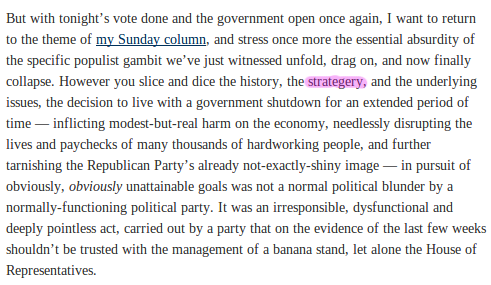"McCain: Attempt to defund Obamacare was 'fool's errand'", NBC News 10/16/2013:
Audio clip: Adobe Flash Player (version 9 or above) is required to play this audio clip. Download the latest version here. You also need to have JavaScript enabled in your browser.
Brian Williams: And how about decorum? You have very nicely passed it off, but recently, Congressman Gohmert of Texas called you an Al Qaeda supporter and it hardly made a blimp [sic] in all the talk.
Audio clip: Adobe Flash Player (version 9 or above) is required to play this audio clip. Download the latest version here. You also need to have JavaScript enabled in your browser.
John McCain: Well, on that particular issue, uh I- sometimes those are- comments like that are made out of malice, but if someone has no intelligence, uh I don't view it as being a malicious statement; um and you know, you can't respond to that kind of thing.
The phrase "someone has no intelligence" is ambiguous: It can mean "someone is not intelligent", or it can mean "someone has no (access to) secret information about an actual or potential enemy". When I read about Senator McCain's comment, I wondered which one he meant, or whether he might be trying to preserve deniability.
Read the rest of this entry »

